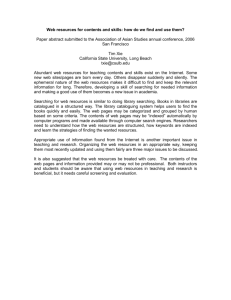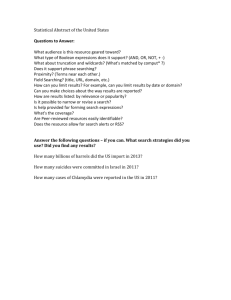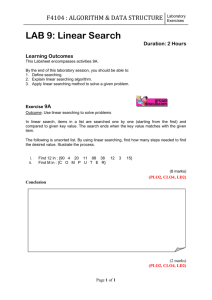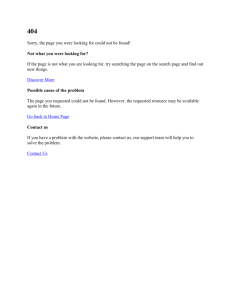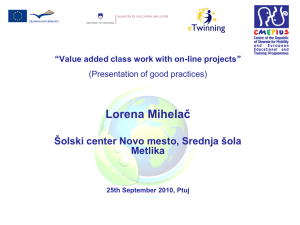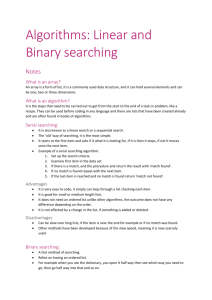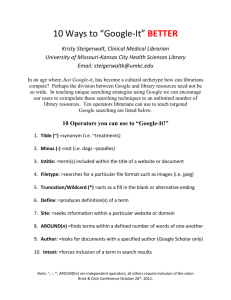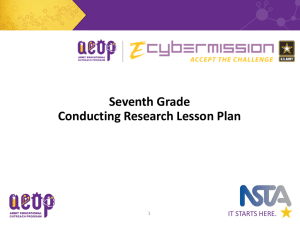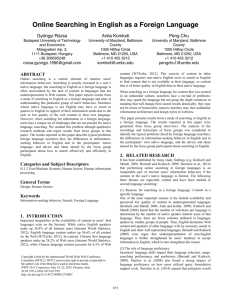Enhancing Learning through Deep Searching
advertisement
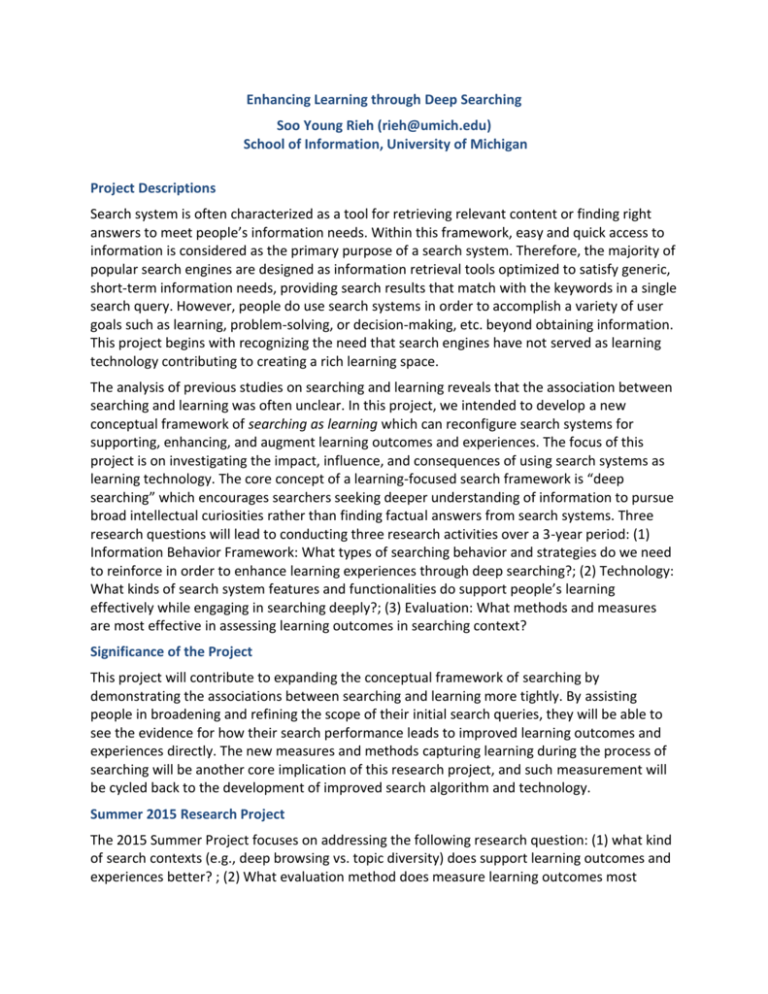
Enhancing Learning through Deep Searching Soo Young Rieh (rieh@umich.edu) School of Information, University of Michigan Project Descriptions Search system is often characterized as a tool for retrieving relevant content or finding right answers to meet people’s information needs. Within this framework, easy and quick access to information is considered as the primary purpose of a search system. Therefore, the majority of popular search engines are designed as information retrieval tools optimized to satisfy generic, short-term information needs, providing search results that match with the keywords in a single search query. However, people do use search systems in order to accomplish a variety of user goals such as learning, problem-solving, or decision-making, etc. beyond obtaining information. This project begins with recognizing the need that search engines have not served as learning technology contributing to creating a rich learning space. The analysis of previous studies on searching and learning reveals that the association between searching and learning was often unclear. In this project, we intended to develop a new conceptual framework of searching as learning which can reconfigure search systems for supporting, enhancing, and augment learning outcomes and experiences. The focus of this project is on investigating the impact, influence, and consequences of using search systems as learning technology. The core concept of a learning-focused search framework is “deep searching” which encourages searchers seeking deeper understanding of information to pursue broad intellectual curiosities rather than finding factual answers from search systems. Three research questions will lead to conducting three research activities over a 3-year period: (1) Information Behavior Framework: What types of searching behavior and strategies do we need to reinforce in order to enhance learning experiences through deep searching?; (2) Technology: What kinds of search system features and functionalities do support people’s learning effectively while engaging in searching deeply?; (3) Evaluation: What methods and measures are most effective in assessing learning outcomes in searching context? Significance of the Project This project will contribute to expanding the conceptual framework of searching by demonstrating the associations between searching and learning more tightly. By assisting people in broadening and refining the scope of their initial search queries, they will be able to see the evidence for how their search performance leads to improved learning outcomes and experiences directly. The new measures and methods capturing learning during the process of searching will be another core implication of this research project, and such measurement will be cycled back to the development of improved search algorithm and technology. Summer 2015 Research Project The 2015 Summer Project focuses on addressing the following research question: (1) what kind of search contexts (e.g., deep browsing vs. topic diversity) does support learning outcomes and experiences better? ; (2) What evaluation method does measure learning outcomes most effectively with respect to acquiring information, understanding ideas, applying and analyzing concepts, and creating new knowledge?; (3) How could searchers’ learning experience and outcomes using a search system be incorporated into developing improved search algorithms optimized for human learning? Research effort in summer 2015 will concentrate on the following research activities: (1) developing a conceptual framework presenting searching as learning; (2) identifying explicit and implicit indicators that demonstrate the evidence of learning; (3) designing research methods to collect empirical data about learning during the searching process; (4) Analyzing qualitative and quantitative data. Student Participation The student trainee will serve as a research assistant for the project and will participate in weekly research meetings. He/she will: (1) search and organize literature in an area of research; (2) conduct statistical analysis of quantitative data (e.g. search questionnaires and server logs) collected from a lab-based experimental user study; (3) categorize and code qualitative data submitted by study participants as the responses to learning-specific questions; (4) prepare a manuscript to be submitted as a conference paper or a journal article at the end of summer. Contribution to Student Academic and professional Development The student will gain experience with analyzing and presenting the empirical data collected from a lab-based experimental user study and will learn what is required to develop a publishable scholarly paper. The student will also get involved in designing a new research method and developing data collection instruments including: (1) search scenarios to be used in the user study; (2) pre- and post-search questionnaires to assess student learning; (3) experimenter instructions explaining the step-by-step user study logistics. Mentoring Plan I will meet with the student on a weekly basis throughout the project. I will provide instruction in data analysis method, and also provide feedback on the analysis work completed by the student. I will also provide an opportunity for the student to develop the drafts of data collection instruments and work together to revise those instruments. I will also instruct the student in writing for a scholarly audience, and provide detailed feedback on manuscript drafts prepared by the student.
